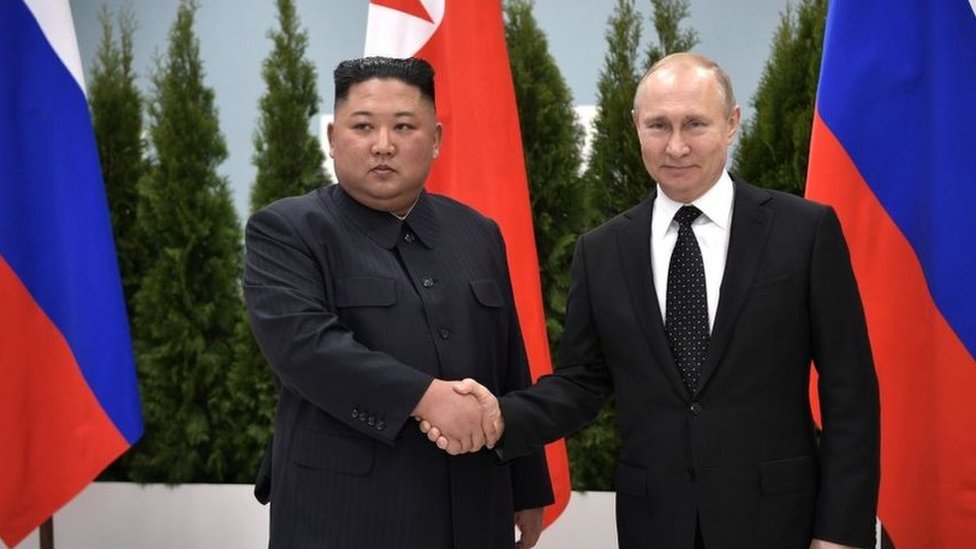
- Since Russia’s latest special military operations in Ukraine, its opportunities, accessibility, and trust with Western countries have stagnated.
- North Korea has emerged as one of Russia’s greatest partners, providing munitions and other essential supplies, and has been a strong sympathizer of Russia in the Ukrainian conflict.
- Collaboration with North Korea can bolster Russia’s position and control in the region, which is crucial for its broader geopolitical strategy.
Since Russia’s latest special military operations in Ukraine, its opportunities, accessibility, and trust with Western countries have stagnated. It would be correct to say that Russia’s doorway towards Europe has been closed, largely by Russia itself, due to a sense of betrayal by Euro-Atlantic nations over the past decades. This has led Russia to open a new gateway towards the Asia-Pacific region. Russia understands the immense potential of regions like the Global South and, in particular, the Asian continent. Russia needs to capitalize on these opportunities and build greater relationships with the countries of the Asia-Pacific, particularly with North Korea.
There was a new chapter written on the relationship between North Korea and Russia last year. North Korea’s premier visited Russia on a historic trip, where he met with Russian President Vladimir Putin. During this visit, they elevated their relationship from military to economic and other levels.
Upon the premier’s return to North Korea, he extended an invitation to President Putin, emphasizing the blossoming relationship between the two countries. President Putin subsequently visited North Korea, during which it was reported that he would sign new declarations with North Korea. These declarations are seen as revitalizing the friendship treaty signed nearly two decades ago, in 2000.
North Korea’s Significance for Russia
Strategic military support: Since the special military operation in Ukraine began, North Korea has emerged as one of Russia’s greatest partners. Reports suggest that North Korea has been supporting Russia militarily, providing munitions and other essential supplies, and has been a strong sympathizer of Russia in the Ukrainian conflict. This support is a key reason why Russia wants to further build its relationship with North Korea, recognizing the importance of continued assistance.
Geopolitical Alliances: North Korea faces substantial challenges from South Korea, Japan, and the United States. North Korea seeks Russia’s support as a deterrence against these countries, aiming to avoid isolation in the Korean Peninsula. A strong partnership with Russia offers North Korea leverage against its regional adversaries, particularly South Korea.
Regional Influence: The South China Sea and the broader Asian region hold significant strategic importance. While China has historically played a key role in the South China Sea, Russia seeks to enhance its influence in this area. Collaboration with North Korea can bolster Russia’s position and control in the region, which is crucial for its broader geopolitical strategy.
The question remains whether the North Korea-Russia relationship is limited to the Asia-Pacific region or if it has broader global implications. This relationship is symbolic and extends beyond the Asia-Pacific, reflecting a strategic alliance against major powers like China, the United States, and European counterparts.
Russia’s efforts to build greater alliances are not only aimed at impacting regional geopolitics in the Asia-Pacific but are also considered to have significant global implications. This poses major challenges for Western countries, as the strengthened Russia-North Korea relationship could shift the balance of power and influence on the global stage.
References:
- https://www.business-standard.com/world-news/vladimir-putin-visits-north-korea-for-first-time-in-24-years-key-details-124061800625_1.html
- https://www.cnn.com/2024/02/28/asia/north-korea-munitions-factories-shipments-russia-ukraine-intl-hnk/index.html
Aayush Pal is a freelance writer on contemporary geopolitical developments. The views expressed in his work are entirely his own.
